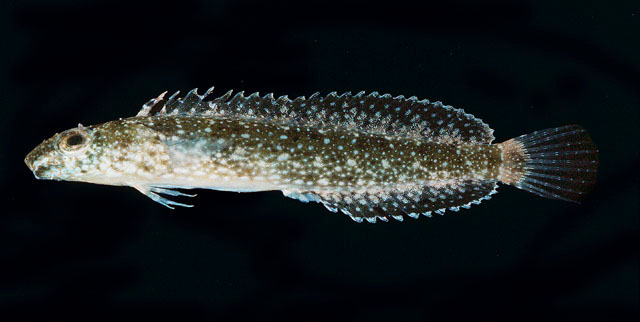| Blenniidae (Combtooth blennies), subfamily: Blenniinae |
| 5.9 cm SL (male/unsexed) |
|
demersal; marine; depth range 1 - 5 m |
| Western Central Pacific: Moluccas, New Guinea, Solomon Islands; Belau and Yap in Micronesia. |
|
Dorsal spines (total): 10-11; Dorsal soft rays (total): 16-18. Closely related to P. variabilis, but is usually more elongate and has a bulbous or elongate snout. |
| Adults inhabit weedy areas such as Sargassum beds. They occur in shallow seagrass beds where they hide by pressing itself against a blade of seagrass. Oviparous. Eggs are demersal and adhesive (Ref. 205), and are attached to the substrate via a filamentous, adhesive pad or pedestal (Ref. 94114). Larvae are planktonic, often found in shallow, coastal waters (Ref. 94114). |
|
Least Concern (LC); Date assessed: 25 March 2009 Ref. (130435)
|
| harmless |
Source and more info: www.fishbase.org. For personal, classroom, and other internal use only. Not for publication.
